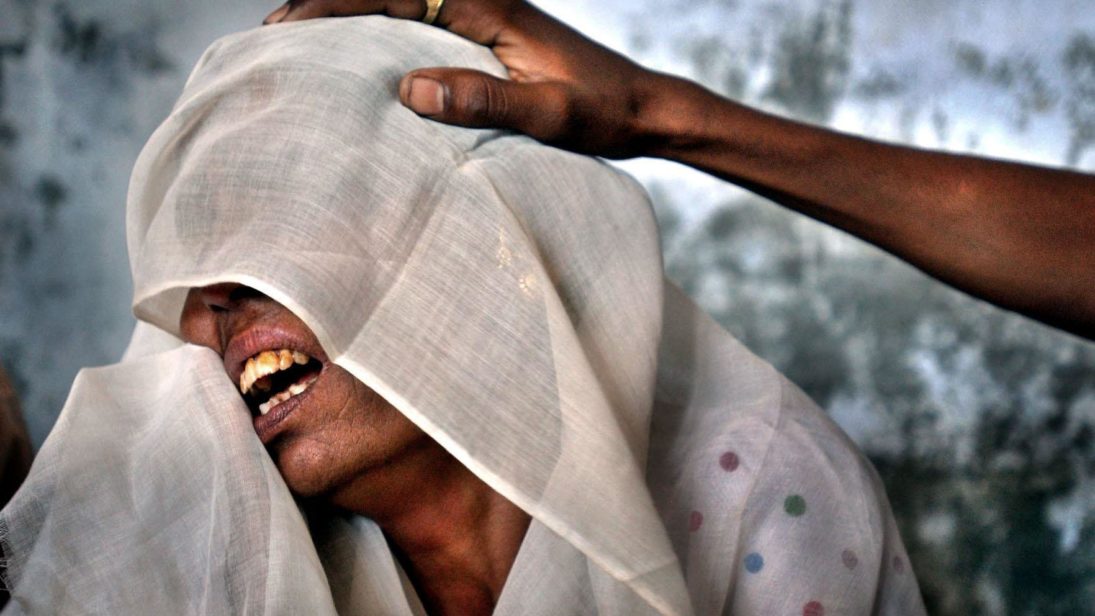
In the seven months since India’s ruling Bharatiya Janata Party (BJP) took office in May 2014, there has been a noticeable rise in aggressive (not necessarily violent) Hindu radicalism percolating into political and social spheres in one way or another. The existence of Hindu radicalism of the aforementioned nature is not new. However, the frequency at which related incidents have taken place over the past seven months, and the impunity with which they continue to happen makes this phenomenon a matter of concern.
For instance, Indian External Affairs Minister Sushma Swaraj’s recent call to make the Bhagwad Gita (a Hindu religious manuscript) a national scripture was an unnecessary move that deliberately brought religion into politics.
India is a multi-cultural and multi-religious country with a tremendous population gap between the majority Hindus and the minority religions with sizeable numbers of practitioners. Therefore, any move that can be perceived as an aggressive push towards narrative-domination by Hindus could result in an increased sense of minoritization and insecurity among the non-majority groups; and a nation where a substantial chunk of the society feels insecure due to the actions of the majority (and vice versa), can never realize its full potential.
A case in point is Iraq’s state-of-affairs during Saddam Hussein’s Sunni rule and then Nouri al-Maliki’s Shia rule post Hussein’s death. The Indian societal construct is far more complex and complicated than Iraq’s, and therefore,demands for a delicate balance to be cautiously maintained while dealing with matters of state that are directly relevant to faith.
Therefore, the row over ‘Ghar Wapsi’ (homecoming of those Hindus who had apparently converted to other religions in the past) where 57 Muslim families in Agra were converted to Hinduism via deceit by the Bajrang Dal, a staunch Hindutva group and an affiliate of the Rashtriya Swayamsevak Sangh (RSS), the BJP’s parent body, and BJP Member of Parliament (MP) Yogi Adityanath’s pushing forward of the ‘reconversion’ drive on Christmas Day, is extremely worrisome.
The minorities view this move as a push for Hindu dominance – and their reasons aren’t unfounded, given the country’s violent history of inter-religious clashes.
Plausibly, the recent emphasis on conversions could be a ploy to gain support to pass the anti-conversion bill in the parliament. The Bill directly contradicts the fundamental right to freedom of religion granted to all Indian citizens as enshrined in the constitution.
Communalism in governance can be kept in check via existing constitutional means thanks to the robustness of India’s polity. The real problem lies in the attitudes and actions of those Hindu radical groups that may or may not be affiliated to the BJP, but view the BJP and the RSS as their role model.
The embarrassingly low levels of emphases the BJP places on promoting religious tolerance is disturbing.
When the smaller Hindu radical groups, who, when they indulge in activities that can potentially harm communal harmony, are let off the hook with mere warnings and statements distancing the BJP from such actions, they perceive it as tacit support; i.e. if the BJP does not support it, it does not undertake strong measures to oppose such behavior either – interpreting it as encouragement to continue their activities.
Indian Prime Minister Narendra Modi may have warned his lawmakers to refrain from making controversial statements – such as Sadhvi Niranjan Jyoti’s ‘Ramzaade or Haraamzaade’ remark – but this reaction itself was extremely belated. The BJP must undertake strong proactive measures to keep politicking devoid of communalism, and express the same in strong and clear words, so that loose-cannon Hindu radicals do not misinterpret silence for support.
This phase – the proliferation of an anti-incumbency sentiment that led to massive public support for religious radicals who promised to fix endemic flaws in the existing system – is reminiscent of the years preceding the Iranian revolution.
Democracies need a separation of faith and State to succeed. The exponential rise of Hindu radicalism portends to manipulate the knowledge-levels and perception of domestic and world history, thereby threatening to give rise to generations of citizens who might, in the future, be incapable of comprehending several complex issues that permeate the workings of domestic and international societies, and thus stands to negatively impact the polities of the future tremendously.
Separation of religion and politicking, especially in the areas of education is extremely important in India, where one person’s holy deed borders on another person’s sin. At its core, the RSS is a Hindu nationalist organization, and no amount of subtle hinting will bring about any change in their attitude towards society. Modi can barely control his own MPs, let alone control the RSS that views the organization as greater than an individual.
As religious extremism and violence engulf today’s world, the only factor holding India’s internal stability together is the common experiences and co-existence of the multi-cultural society – a result of history and the secular principles the country was built on. Belligerence towards Hinduising the country will only lead to sinister ends.
Statistically, India is a Hindu-majority country, but aggressive Hindu nationalist tendencies have the potential to become India’s Achilles Heel.
Note: Views expressed are the author’s own and not necessarily reflect the views of the organizations she is affiliated to
***